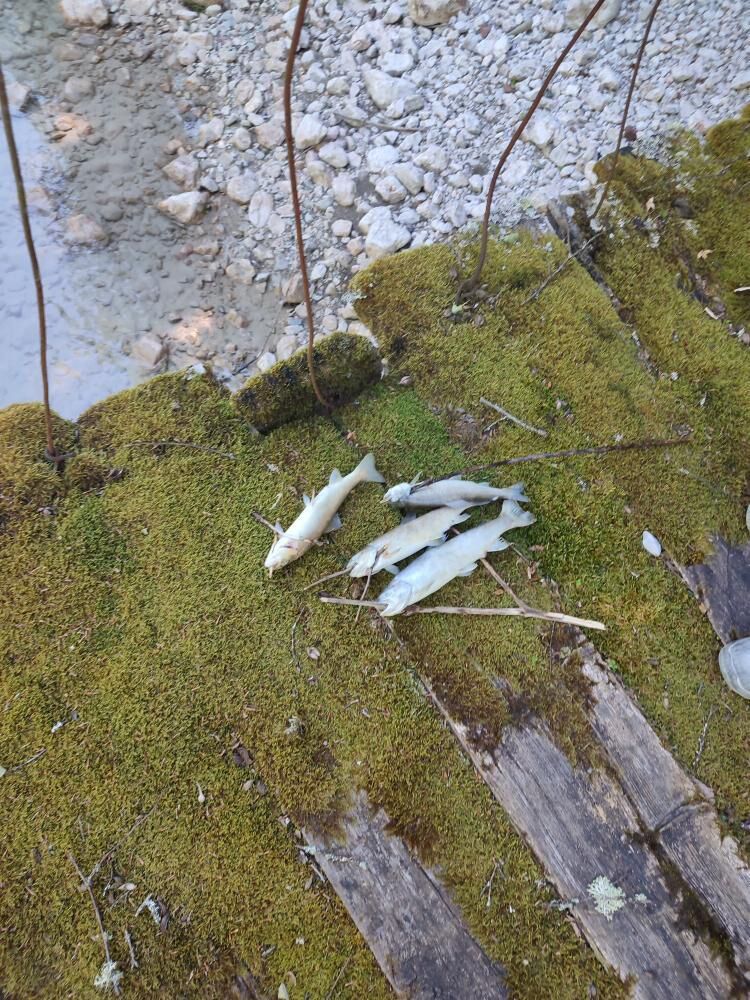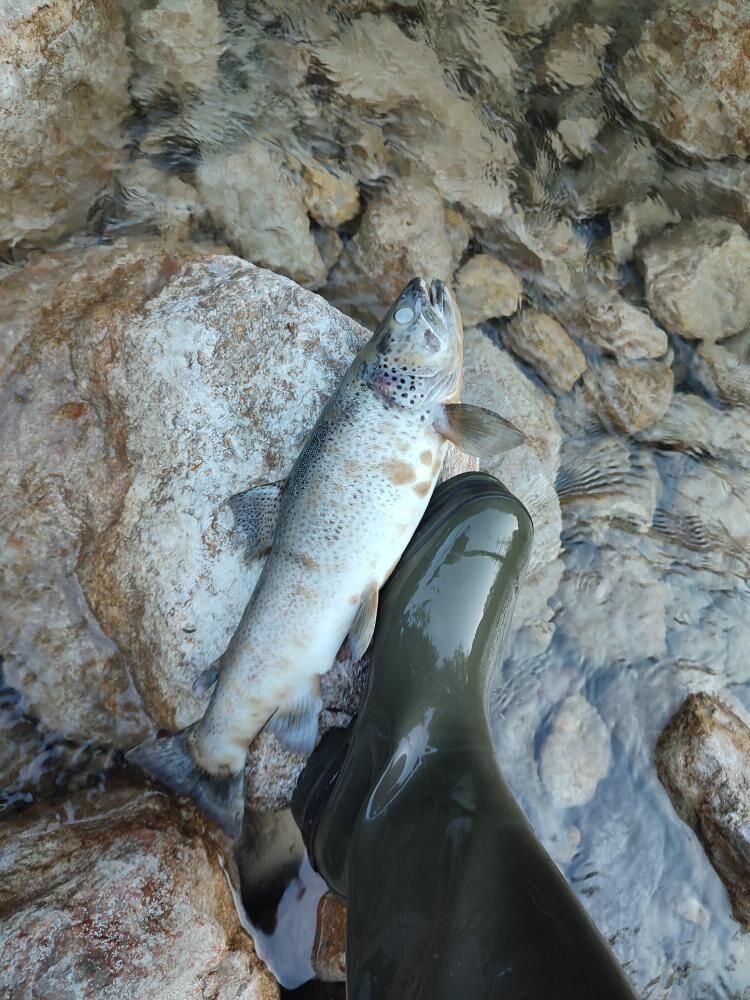
©Vladimir Topić
Due to the intensification of construction work on the Ulog hydroelectric power plant, located in the municipality of Kalinovik, as claimed by the local residents and fishermen, there have been several instances of fish demise over a stretch of several kilometers. According to their accounts, “life in the river has ceased” along a longer section of the Neretva River.
Upon visiting the site, representatives from the Center for Environment determined that a segment of the Neretva River near the Ulog location is polluted, which is why a letter was sent to the inspection authorities.
“Over the past few weeks, the state of the Neretva River has been catastrophic, as reported by the locals, and we have confirmed this on the ground. At this point this all seems to be an ecological disaster. The water is completely white and polluted, and we are unsure whether there are additives or something else involved, but it is certain that everything is coming from the Ulog hydroelectric power plant construction site. There is a demise of fish in the water, and other aquatic and terrestrial life is suffering as well. It is evident that fish are leaping out of the water due to a lack of oxygen. The consequences of this pollution can surely be felt many kilometers downstream, towards Bjelimići and Glavatičevo. An urgent response and an inspection visit to the site are needed to prevent this and further catastrophes. We sent a letter to the inspection today, and we hope they will react promptly,” said Vladimir Topić, the coordinator of the Save the Blue Heart of Europe campaign from the Center for Environment.
“The upper course of the Neretva River, upstream from the construction site of the Ulog hydroelectric power plant, is a high-value natural area for which the Center for the Environment, as part of the regional Together for Rivers campaign, has initiated a protection process. Ultimately, this area is expected to be declared a protected natural habitat. This process is currently being pursued through the Ministry of Spatial Planning, Construction, and Ecology of Republika Srpska.
Through research conducted on several occasions on the Neretva River within the mentioned campaigns, over 1300 species have been discovered. Among them, 24 are new species for Bosnia and Herzegovina, and eight are new to science, including one officially confirmed.
The analyzed physico-chemical parameters of the water indicate exceptional water purity, categorizing it as quality class I. This part of the Neretva River is also home to numerous endemic species, such as the Adriatic brown trout and the white-clawed freshwater crab.
We would like to remind you that last year in Strasbourg, recommendations for Bosnia and Herzegovina were adopted due to the negative impacts of planned hydro energy projects on the Neretva River. These recommendations were made based on a complaint submitted by the Center for the Environment and the Aarhus Center in Bosnia and Herzegovina, in collaboration with international organizations such as Riverwatch, EuroNatur, CEE Bankwatch Network, and ClientEarth.

